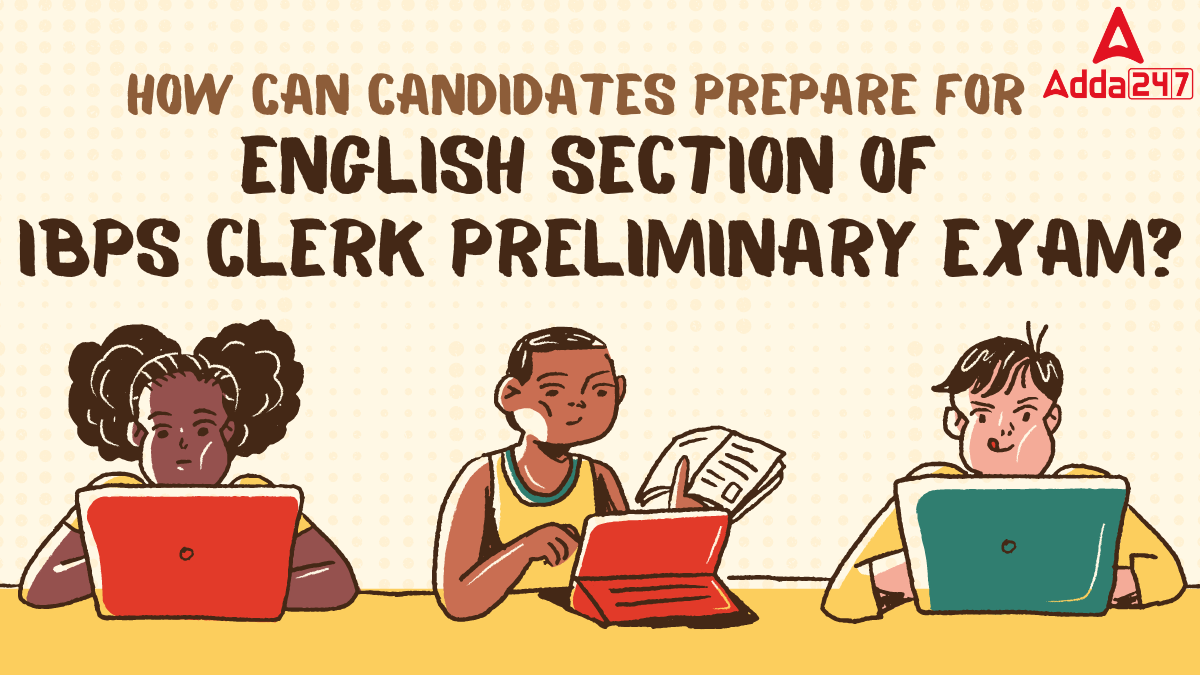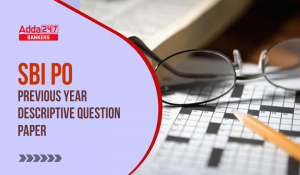Table of Contents
Preparing the English section is not just about learning grammar rules or expanding vocabulary; it’s about developing a holistic understanding of the language and its application in various contexts. The English section of the IBPS Clerk Preliminary Exam is designed to assess a candidate’s proficiency in the English language. It comprises questions that test grammar, vocabulary, reading comprehension, and overall language skills. Excelling in this section can significantly boost your overall score.
Understanding the Exam Pattern for the IBPS Clerk Preliminary Exam
Before going for preparation strategies, it’s crucial to understand the exam pattern for the English Language Section
- Number of Questions: 30
- Total Marks: 30 marks (Negative Marking: 0.25 marks)
- Duration (Section-wise): 20 minutes
- Question Type: Objective
Topics in the English Section of IBPS Clerk
The English section of the IBPS Clerk Exam includes the following topics:
- Reading Comprehension
- Cloze Test
- Fillers
- Error Spotting
- Sentence Improvement
- Para Jumbles
- Vocabulary
How Can Candidates Prepare for the English Section of the IBPS Clerk Preliminary Exam?
Preparing for the English section of the IBPS Clerk Preliminary Exam requires a multifaceted approach. Regular practice, consistent effort, and smart study strategies are key to excelling in this section. Remember, improvement in language skills is a gradual process, so maintain a steady pace.
Master Grammar Rules
- Review basic grammar rules, focusing on areas like tenses, subject-verb agreement, and parts of speech.
- Practice identifying and correcting grammatical errors in sentences.
- Use online grammar quizzes for regular practice.
Improve Reading Skills
- Read diverse materials daily, including newspapers, magazines, and online articles.
- Practice active reading by summarizing what you’ve read.
- Time yourself while reading to improve speed without compromising comprehension.
Enhance Vocabulary
- Learn 10-15 new words daily.
- Use flashcards or vocabulary apps for regular revision.
- Practice using new words in sentences to better understand their context and usage.
- Focus on commonly confused words and their correct usage.
Cloze Test & Fill in the Blanks
- Improve your understanding of context clues.
- Practice predicting words that fit logically and grammatically in a given sentence.
- Focus on transitional words and phrases that connect ideas.
Para Jumbles
- Look for opening and concluding sentences.
- Identify connecting words and phrases that link sentences.
- Practice arranging jumbled sentences to form meaningful paragraphs.
Reading Comprehension
- Develop the habit of quick skimming and scanning.
- Practice identifying main ideas and supporting details.
- Work on inferring information not directly stated in the passage.
Error Spotting
- Familiarize yourself with common grammatical errors.
- Practice identifying errors in sentence structure, verb usage, and pronoun agreement.
- Solve error spotting exercises regularly to improve accuracy and speed.
Time Management
- Practice solving questions within the stipulated time frame.
- Allocate time for each type of question based on your strengths and weaknesses.
- Take full-length mock tests to improve your time management skills.
Mock Tests
- Regularly attempt mock tests that simulate the actual exam environment.
- Analyze your performance after each test to identify areas for improvement.
- Focus on improving your accuracy along with speed.
Focus on Weak Areas
- Identify your weak areas through practice tests.
- Allocate more time and resources to improve these areas.
- Seek help from teachers or online resources for concepts you find challenging.
Develop a Study Routine
- Create a daily study schedule dedicating specific time to English preparation.
- Balance your preparation across all question types.
- Ensure consistency in your preparation efforts.
Revision Strategies
- Maintain a notebook of new words, idioms, and phrases you encounter.
- Regularly revise grammar rules and exceptions.
- Create mind maps for complex topics to aid in quick revision before the exam.
Common Mistakes to Avoid
- Neglecting basic grammar rules.
- Overemphasis on rote learning of words without understanding their usage.
- Ignoring time management during practice sessions.
- Not practising all types of questions equally.
- Focusing solely on increasing speed at the cost of accuracy.




 GA Capsule for SBI Clerk Mains 2025, Dow...
GA Capsule for SBI Clerk Mains 2025, Dow...
 The Hindu Review October 2022: Download ...
The Hindu Review October 2022: Download ...
 SBI PO Descriptive Paper, Previous Year ...
SBI PO Descriptive Paper, Previous Year ...


